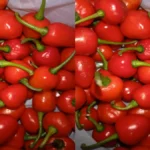In the quiet village of Assam Lingzey, Sikkim, dairy farmer Pema Dorjee checks his payment slip and breaks into a smile. He has earned Rs. 8 per litre for his milk for the first time, a 30% increase from previous rates—thanks to a bold new government incentive. This policy, backed by the Sikkim State Cooperative Union (SICUN), is transforming lives across the state and setting a blueprint for rural development in Northeast India.
The Rs. 8/litre subsidy is part of a larger push to strengthen cooperatives in Sikkim. With support from Chief Minister P.S. Tamang (Golay), a new training centre in Tamla Village, and cash awards up to Rs. 10 lakh for top-performing cooperatives, Sikkim is emerging as a leader in India’s cooperative movement.
The Backbone of Change: Sikkim’s Cooperative Ecosystem
Cooperatives have long been the backbone of Sikkim’s rural economy. The Sikkim State Cooperative Union (SICUN), led by Chairman Dr. Mangal Jit Rai, has been instrumental in driving this growth. In 2022, Sikkim’s Milk Union won the NCDFI Award for Best Dairy Cooperative, a testament to its success.
Now, with Tribhuwan Sahakar University—India’s first cooperative-focused university—joining forces, the state is taking its next big leap. During a recent meeting in Gandhinagar, Dr. Rai presented plans for the North East Cooperative Excellence Training Centre, a Rs. 50-crore project providing world-class training to farmers and cooperative leaders.
How the Rs. 8/Litre Incentive Works
The Rs. 8/litre subsidy is simple but powerful. Dairy farmers who sell through registered cooperatives receive a guaranteed rate, ensuring a stable income. Before this, farmers often struggled with fluctuating market prices, sometimes earning as little as Rs. 5 per litre.
The results have been dramatic:
- Sikkim Milk Union now collects 50,000 litres daily, up from 35,000 litres before the subsidy.
- Over 5,000 small farmers joined cooperatives last year.
- The state now supplies milk to the Indian Army, a significant milestone.
Chief Minister Golay has called the policy a “win-win”—helping farmers while boosting local dairy production.
Beyond Dairy: Training, Awards, and Expansion
The Rs. 8/litre scheme is just the beginning. SICUN is also launching:
- North East Cooperative Excellence Training Centre
- Located in Tamla Village, Assam Lingzey.
- Will offer residential training programs for farmers, women’s groups, and youth.
- Focus on modern dairy techniques, financial literacy, and digital tools.
- Cash Awards for Top Cooperatives
- Rs. 10 lakh for 1st place, Rs. 7 lakh for 2nd, Rs. 5 lakh for 3rd.
- Winners will be announced on Independence Day 2024.
- Goal: Encourage innovation and efficiency among cooperatives.
- Tribhuwan Sahakar University Partnership
- The university will help design training programs.
- Possible research collaborations on sustainable farming and cooperative governance.
Challenges: Can the Momentum Last?
Despite the progress, hurdles remain:
- Geographic barriers: Remote villages still struggle with transportation and cold storage.
- Funding questions: Will the state sustain subsidies if milk production doubles?
- Market competition: Private dairy brands may resist cooperative growth.
Dr Rai acknowledges these issues but remains confident. “We’re building systems, not just handouts,” he says.
Why Other States Should Take Notice
Sikkim’s model is already inspiring neighbouring states:
- Assam and Manipur have sent delegations to study the Rs. 8/litre policy.
- Nepal recently honoured SICUN with the Sahakari Ratna Award 2025 for cross-border impact.
With Tribhuwan Sahakar University’s support, Sikkim aims to become a national hub for cooperative innovation.
What’s Next?
Key upcoming developments:
- Dr. J.M. Vyas, VC of Tribhuwan Sahakar University, will visit Sikkim in June to assess progress.
- Digital payment systems for milk collection are being tested.
- New women-led cooperatives are set to launch by year-end.
Conclusion: A Blueprint for Rural Success
Sikkim’s Rs. 8/litre revolution proves innovative policies + strong cooperatives = real change. As farmer Pema Dorjee says, “Now, my children can dream bigger.”
With more training, fairer prices, and national recognition, Sikkim’s dairy farmers are writing a new future—one litre at a time.










